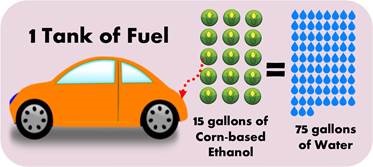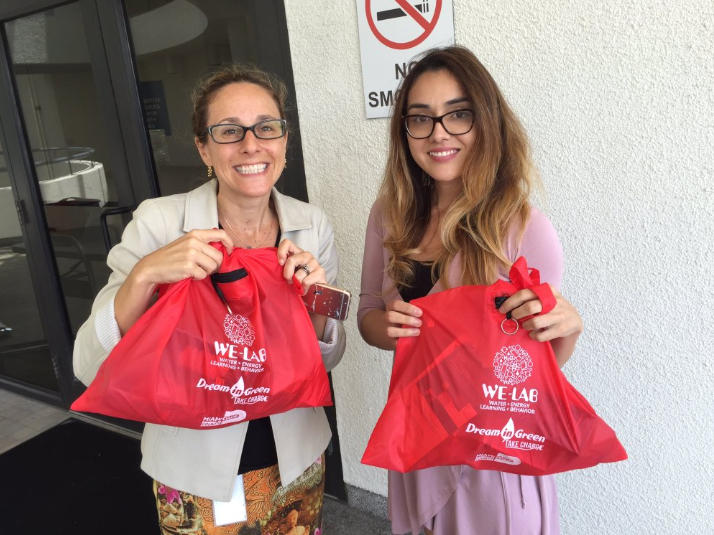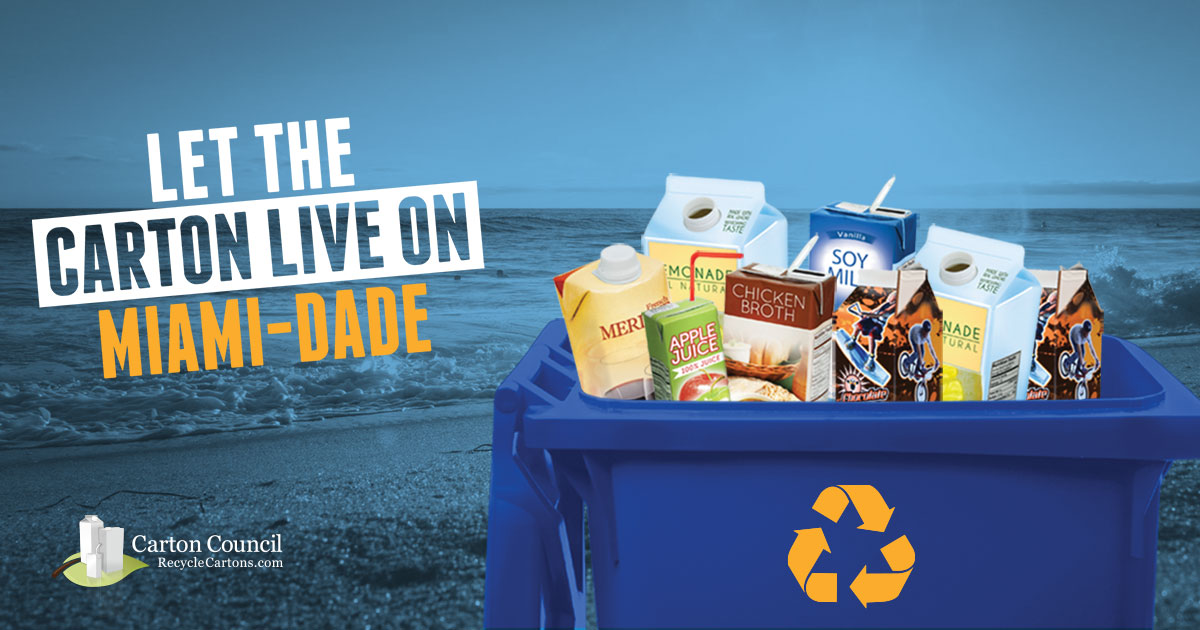As the purchase of alternative transportation vehicles that use biofuel or electricity continue to gain popularity in the United States, water will become increasingly linked to transportation energy. In fact, biofuels such as biogas or biodiesel that is produced from renewable resources such as plants, vegetable oils, or treated waste, are often criticized for their high water consumption in their production. For example, Corn-based ethanol, which is generally considered an eco-friendly fuel, places a very high demand on water supplies, and on average it takes 3.5 to 6 gallons of water to produce one gallon of ethanol.
This can present quite a dilemma for even the most environmentally conscious consumer: which is better – saving water or avoiding fossil fuel use and emitting CO2?
I suggest we need to do both. It’s not one versus the other. You see, energy and water are intrinsically linked through the Water-Energy Nexus. Producing energy requires water, and treating and delivering potable (drinking) water requires large amounts of energy. In fact, a person uses four times more water a per in the energy consumed like by watching TV and turning lights on, then by direct water use like brushing their teeth or washing the dishes.
So now we know that bio-fuel and energy are water dependent, and that saving both energy and water is important. Good ways to avoid fossil fuel use and save water include driving less, carpooling and using public transportation as much as possible. You can also use less energy at home by doing things like switching to energy-efficient appliances and light bulbs and turning off electronics when they’re not being used. Water-efficient appliances also play a critical role: saving water saves energy which further reduces the strain on water resources and, of course, helps in the fight to clean our air and slow climate change.
Small efforts to conserve energy and water really add up, and we each have the power to save.






